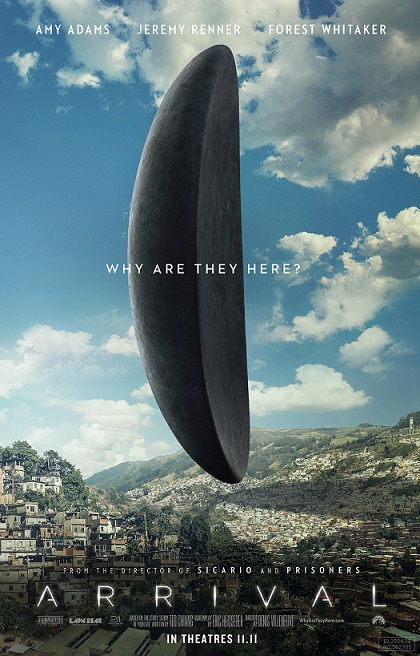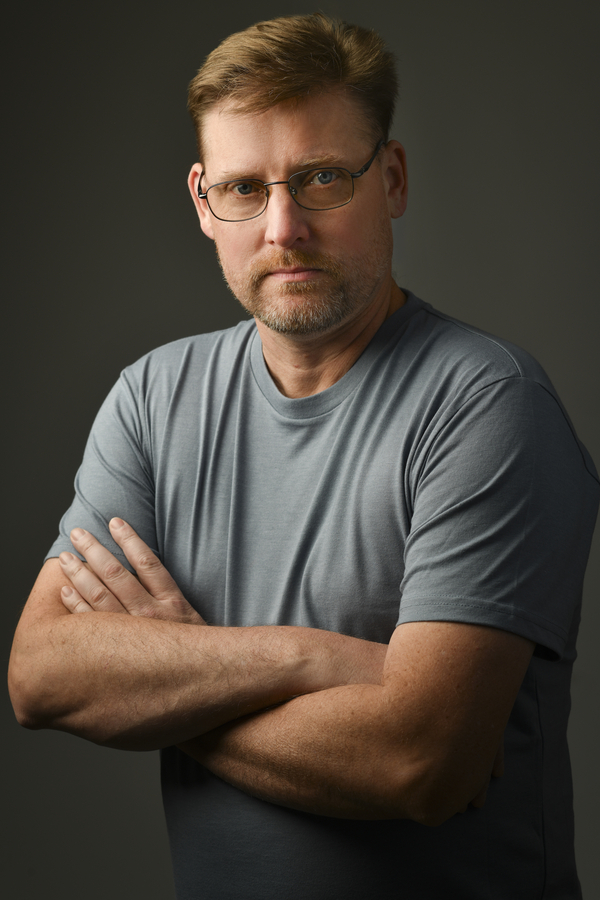By Elisa Rossi
 The alien-contact movie, starring Amy Adams and directed by Denis Villeneuve, is the best film of the year so far.
The alien-contact movie, starring Amy Adams and directed by Denis Villeneuve, is the best film of the year so far.
Arrival, the remarkable new film by Denis Villeneuve, begins aptly enough with an arrival—though perhaps not the kind you would expect. A baby is born, and her mother, played by Amy Adams, explains in voiceover, “I used to think to this was the beginning of your story.” We see the girl’s life, in flashback—games of cowboy, arguments, reconciliations—as her mother continues, “I remember moments in the middle … and this was the end.” We see the girl, now a teenager, in a hospital bed. Then we see the bed empty.
The sequence—a brief life encompassed in still briefer summary—is surely among the most heartbreaking since Michael Giacchino’s magnificently versatile waltz carried us through the “Married Life” segment of Up. And while at first it appears to be mere backstory for Adams’s character, it is in fact much more, perhaps the most crucial thread in Villeneuve’s intricately woven film.
Adams plays Dr. Louise Banks, a world-class linguist whom the Army once asked for help with a Farsi translation. “You made quick work of those insurgent videos,” a Colonel Weber (Forest Whitaker) reminds her; “you made quick work of those insurgents,” she rebuts. The Army needs her help once again, although this time the work is decidedly more esoteric: Aliens have arrived on Earth in a dozen giant craft scattered across the globe, one of them in the wilds of Montana. Colonel Weber would like Louise to come with him, learn the aliens’ language, and ask them why they’re here. On the flight into Big Sky Country, she is introduced to her partner in this endeavor, a genial physicist named Ian Donelly (Jeremy Renner, looking relieved that no one expects him to lug around a bow and quiver).
Villeneuve clearly knows his Godzilla, and like Ishiro Honda he takes his time before revealing his leviathan. As the chopper bearing the scientists skims over the plains, the alien craft emerges, literally, from the mist: a 1,500-foot edifice of what looks like black rock floating weightlessly just above the ground, like a giant skipping-stone poised on one tip.
Accompanied by soldiers and technicians, Louise and Ian enter the craft by means of a square shaft in its base. Once inside, however, gravity releases them and then shifts 90 degrees, such that the shaft is now a corridor and one of its walls the floor. It is a dizzying moment for Louise and Ian, and no less so for the audience, like when Fred Astaire danced his way up the wall in Royal Wedding. As Ian responded to the sudden inversion with “holy fuck,” I was right there with him.
At the end of the corridor they meet their hosts, two giant, squid-like beings that float on the other side of a transparent barrier. Louise and Ian call them “heptapods” owing to their seven symmetrical tentacles, and name the two “Abbott” and “Costello,” because, well, why not? Efforts at verbal communication are unsuccessful, but written language proves more promising. From their starfish-like hands, the heptapods can emit swirling circles of inky gas, each one of them—as Louise concludes—a fully formed sentence with neither beginning nor end. Communication with the creatures moves slowly, but it at least begins to move.
Like Villeneuve’s recent films Sicario and Prisoners, the movie is at once evocative and mysterious. As events unspool, we can sense that—like Louise with the heptapods—we do not entirely comprehend them. (We are correct in this.) As she and Ian try to decode the creatures’ language, they are constrained in their efforts by Colonel Weber and, especially, a CIA agent named Halpern (Michael Stuhlbarg). Until we know more of the aliens’ intentions—conquest? tourism? cup of sugar?—Weber and Halpern are greatly concerned that we do not accidentally teach them more about ourselves than we learn about them.
Moreover, there are geopolitics to consider. Eleven other craft hover elsewhere on Earth: Shanghai, Siberia, Sudan, Sierre Leone, and even a few places not starting with “s.” What if China or Russia makes a breakthrough with the aliens first and uses what it learns against the United States? What if shots are fired, bringing alien wrath down upon the whole globe? Already their arrival has enveloped America in a sense of dread and anxiety not seen since—well, this entire political season. Looting breaks out in the cities; Pentecostals self-immolate; talk-radio tough guys demand “a show of force, a shot across their bows.”
The look of Arrival is stately and elegant; its pace, sober and deliberate. This is Villeneuve’s first collaboration with the cinematographer Bradford Young, who shot my two favorite films of 2014 in A Most Violent Year and Selma. The score, by the frequent Villeneuve contributor Jóhann Jóhannsson, is multifaceted and occasionally spellbinding, not least when its low horns boom with menace, almost like an alien voice themselves.
The script is by Eric Heisserer, who cunningly adapted and expanded it from a short story by Ted Chiang. It’s tempting to describe Arrival as “thinking person’s science fiction.” And while I will not descend to such hokey nomenclature, there’s a reason you’ll probably see that phrase plenty in conjunction with the film.
It would be a disservice to describe how the plot unfolds any further, as Villeneuve releases information gradually and viewers will likely clue into the film’s true meaning at different points in its evolution. Suffice to say that Arrival is a “twist” movie, but the twist is more than a mere gimmick. Like Christopher Nolan’s Memento, it is central not only to the film’s narrative but also to its moral architecture—which, like Memento’s, concerns itself with questions of time, memory, and human choice. This is precisely the kind of science-fiction movie, at once epic and intimate, that Interstellar tried (and failed) to be.
The entire cast is strong, but Arrival is Adams’s movie from the first frame to the last. I confess that I initially thought that her gifts might be wasted on such space-invader fare, but the performance she gives is mesmerizingly open, by turns uplifting and sorrowful. If you are unmoved by the film’s conclusion, then you are made of considerably harder stuff than I.
As awards season gets under way, there are several promising movies visible hovering on the horizon. But for now, the best film of the year, ambitious in conception and extraordinary in execution, has arrived.
Elisa Rossi
Sun Communication










